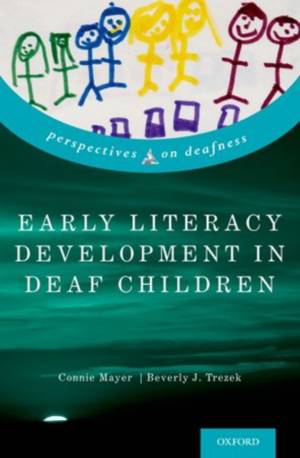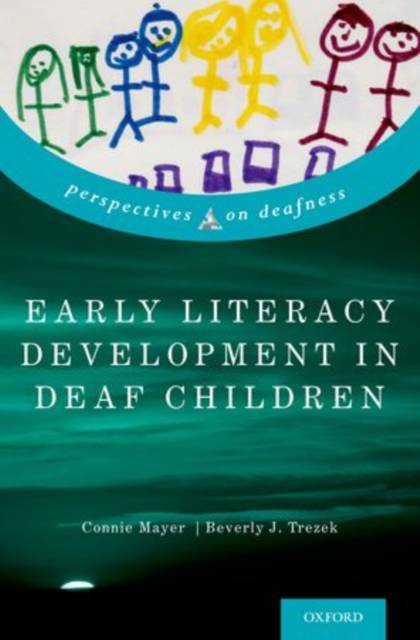
- Retrait gratuit dans votre magasin Club
- 7.000.000 titres dans notre catalogue
- Payer en toute sécurité
- Toujours un magasin près de chez vous
- Retrait gratuit dans votre magasin Club
- 7.000.0000 titres dans notre catalogue
- Payer en toute sécurité
- Toujours un magasin près de chez vous
Description
There is a robust body of knowledge suggesting that early language and literacy experiences significantly impact on future academic achievement. In contrast, relatively little has been written with respect to the early literacy development and experiences of deaf children.
In Early Literacy Development in Deaf Children, Connie Mayer and Beverly J. Trezek seek to fill this gap by providing an in-depth exploration of how young deaf children learn to read and write, identifying the foundational knowledge, abilities, and skills that are fundamental to this process. They provide an overview of the latest research and present a model of early literacy development to guide their discussion on topics such as teaching reading and writing, curriculum and interventions, bilingualism, and assessment. Throughout, they concentrate on the ways in which young learners with hearing loss are similar to, or different from, their hearing age peers and the consequent implications for research and practice. Their discussion is wide-reaching, as they focus on children from various cultural and linguistic backgrounds, those with additional disabilities and hearing losses ranging from mild to profound, and those using a range of communication modalities and amplification technologies, including cochlear implants.
With the implementation of Universal Newborn Hearing Screening and advancements in hearing technologies that have heightened both the emphasis on literacy development in the early years and the importance of these years in the ultimate development of age-appropriate reading and reading outcomes, this timely text addresses a topic that has thus far eluded the field.
Spécifications
Parties prenantes
- Auteur(s) :
- Editeur:
Contenu
- Nombre de pages :
- 200
- Langue:
- Anglais
- Collection :
Caractéristiques
- EAN:
- 9780199965694
- Date de parution :
- 26-06-15
- Format:
- Livre relié
- Format numérique:
- Genaaid
- Dimensions :
- 155 mm x 236 mm
- Poids :
- 385 g

Les avis
Nous publions uniquement les avis qui respectent les conditions requises. Consultez nos conditions pour les avis.






